Goddamn it, what’s happening to us, man?
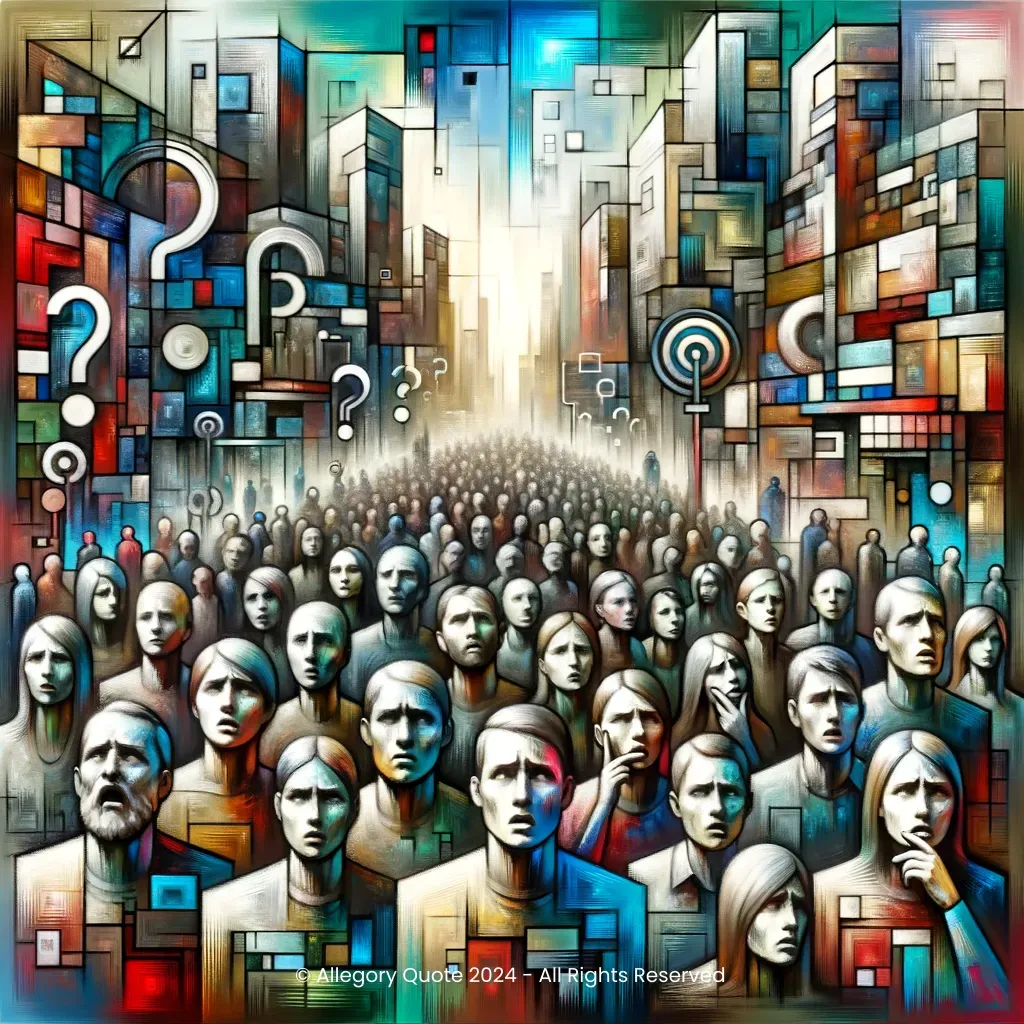
0
0
0
0
- Meaning
- The phrase reflects a deep sense of existential questioning and frustration, often encountered during times of societal upheaval or personal crisis. It can be viewed through philosophical lenses, such as existentialism, which deals with the search for meaning in life amidst chaos. Psychologically, it signifies disillusionment, highlighting the struggle to find clarity in confusing situations.
- Allegory
- The image features a bustling cityscape where the hustle can signify overwhelming chaos. Figures in the foreground, with expressions of confusion and concern, illustrate the human condition reflected in the phrase. The labyrinth symbolizes the complexity of modern challenges, while sporadic brighter areas evoke hope and the possibility of clarity, resonating with the underlying message of seeking answers in dark times.
- Applicability
- In personal life, this phrase encourages one to confront feelings of uncertainty and frustration directly. It serves as a catalyst for self-reflection, urging individuals to seek deeper understanding and solutions to their dilemmas.
- Impact
- This phrase has been echoed in various social movements and cultural conversations as people grapple with issues like social injustice, political dissatisfaction, and personal identity crises. It often surfaces in music, films, and literature that explore themes of societal angst and individual struggle.
- Historical Context
- The phrase likely arises from contemporary societal issues, particularly in the late 20th to early 21st century, when many people began to express dissatisfaction with the direction of society, fueled by rapid changes in technology, culture, and politics.
- Criticisms
- Critics may argue that such expressions of frustration do not offer constructive solutions or can lead to nihilism. Some may suggest that instead of lamenting the state of affairs, individuals should seek proactive ways to engender change in their communities.
- Variations
- Variations of this phrase exist in many cultures, often expressing the collective confusion during tumultuous times. For instance, in various political movements globally, similar sentiments are expressed but may focus on specific cultural or national issues.
-
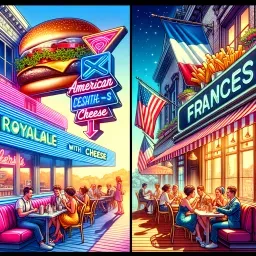
Do you know what they call a Royale with Cheese?
-

I don’t remember asking you a goddamn thing!
-
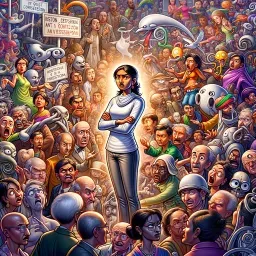
I’m surrounded by idiots.
-
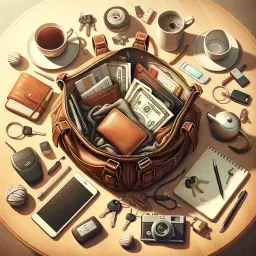
I want you to go in that bag and find my wallet.
-
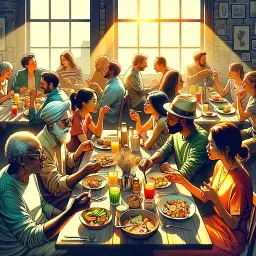
Looks like me and Vincent caught you boys at breakfast. Sorry about that. What you having?
-

Now, if you’ll excuse me, I’m going to go home and have a heart attack.
-
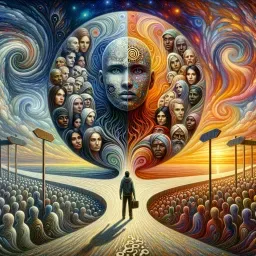
A question that sometimes drives me hazy: am I or are the others crazy?
-

Zed’s dead, baby. Zed’s dead.
-

Just because you are a character doesn't mean that you have character.
-
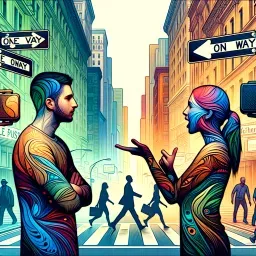
You never fing mind, man. That’s your fing business.
-
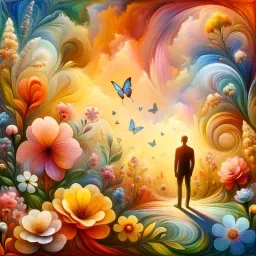
I’m trash!
-

Happiness is not something ready-made. It comes from your own actions.
No Comments